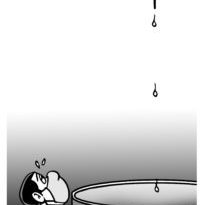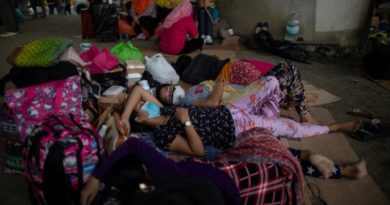EDITORIAL: The Straits Times says- Opening up travel one step at a time
The Straits Times

Eight months into the worst pandemic in recent memory, it is clear that the initial response of shutting down travel, bans on dining out and various other measures, while appropriate and necessary at the time, has damaged the economic health of nations and devastated livelihoods. Many of the jobs lost will probably never return. Students are in danger of losing entire school years and many who were poised to enter the job market now face a longer wait. Even deep-pocketed nations are aware that their reserves are not interminable even as some divert funds marked for other sectors to the crisis effort. Also to be considered are the long-term perils of people and businesses getting too dependent on government support.
.


.
Against this backdrop of contest between life and livelihood, nations, especially those that have gained confidence in controlling and treating the disease, are edging towards easing some restrictions to help hard-hit sectors like aviation and tourism. Singapore has moved in this direction with “travel bubbles” with countries like China and Japan, more leeway for Changi Airport transit passengers from designated nations using Singapore Airlines flights, and the decision on general travel for Brunei and New Zealand from next month. The stay-home notice period for visitors from Australia (excluding Victoria state), Macau, mainland China, Taiwan, Vietnam and Malaysia will also be shortened, from 14 days to seven.
The most significant of the measures, of course, is the partial easing of movement from and to Malaysia. This will take place under two schemes: the reciprocal green lane for travellers on shorter visits, and the longer-term periodic commuting arrangement that allows Singapore and Malaysia residents who hold long-term immigration passes for business and work purposes in the other country to enter that country for work. Safeguards such as the seven days stay-home notice for periodic commuters and pre-departure health checks for the green lane users will no doubt act as somewhat of a brake. Still, it is difficult to see the daily numbers of Causeway users returning too quickly to the pre-Covid number of 300,000.
.


.
Other nations are trying similar steps. South Korea, for instance, has a fast lane for business and essential travel. The key to all this is calibration. Being too hasty with reopening can have costly consequences. The United Kingdom, for instance, has had to reinstate quarantine measures on travellers from Spain, France, Malta and the Netherlands. Finland has removed most European Union countries from its “green lane” travel list. Closer to home, Australia today has one of the world’s toughest Covid-19 travel rules because of a fresh outbreak in Victoria caused by returnees who breached the hotel quarantine system. The lesson here is obvious: If travel is to be eased, the traveller must play his part as well.


SIGN UP TO RECEIVE OUR EMAIL
.
The most important news of the day about the ASEAN Countries and the world in one email: [email protected]
8.25.2020









